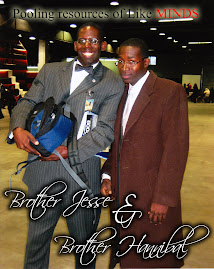http://news.yahoo.com/s/ap/20090609/ap_on_re_la_am_ca/lt_peru_amazon_protestsAmazon Indians challenge Peru government over land
 TARAPOTO, Peru – The Aguaruna Indians have a well-earned reputation as warriors. In pre-Columbian times they successfully resisted Inca subjugation. And during Peru's 1995 border war with Ecuador, they served as guides for the army.Those who know them weren't surprised, then, at the fierce resistance — 23 officers were killed — when President Alan Garcia's government sent heavily armed police to clear several thousand Aguaruna and their Wampi cousins from an Amazon highway blockade.The ensuing turmoil has set Garcia's government on a collision course with this Andean nation's indigenous peoples.London-based Survival International, which promotes tribal rights, called Friday's melee "Peru's Tiananmen Square," comparing it to China's bloody 1989 crackdown on pro-democracy protesters.It was Peru's worst political violence since the Shining Path guerrillas were quelled in the mid-1990s, and prompted Indian and labor groups to call a general strike for Thursday.The strikers' demands are the same as those of the protesting Indians: that Congress revoke laws to promote oil and natural gas extraction, logging and large-scale agriculture on traditional Indian lands. Garcia decreed the laws to comply with a new U.S.-Peru free trade agreement."We don't get anything from this huge exploitation, which also poisons us. We've never seen any development and my community lives in poverty," local Aguaruna leader Mateo Inti told The Associated Press in Bagua, the scene of Friday's violence.They also want Garcia and his Cabinet prosecuted for the bloodshed, which they say also killed 30 Indians. The government puts the civilian death toll at nine — outraging the Indian leaders who accuse police of burning and hiding more bodies."We're not taking even one step back. We haven't lost this fight," protest leader Daysi Zapata said.Peru's government on Tuesday denied using excess force against the Indians."It has been irrefutably proven that the police were tortured and killed," Ambassador Maria Zavala told the Organization of American States in Washington.She said the government has tried to negotiate with the Indian groups but that they have grown more radical.The government filed sedition charges against Alberto Pizango — Zapata's boss in an organization representing 350,000 people from 56 Amazon nations.Pizango took refuge Monday in the Nicaraguan Embassy and the Central American nation announced Tuesday it was granting him asylum.Also Monday, Garcia's minister of women and social development resigned to protest the government's handling of the crisis.Carmen Vildoso said her resignation was "for political reasons, obviously," but declined to elaborate. Cabinet chief Yehude Simon said she objected to government TV ads that show gruesome photos of slain police and claim an international conspiracy "wants to prevent Peruvians from benefiting from their oil."Protests appeared to ease, meanwhile, on jungle highways and rivers intermittently blocked since early April by Indians who believe Garcia is trying to privatize their communal lands.Hundreds of police reinforcements were sent to the conflict zone, where protesters let food and gasoline through a blockade on the highway linking the jungle cities of Tarapoto and Yurimaguas.Spokesman Fernando Daffos of Perupetro, which runs the only pipeline pumping oil from Peru's jungle, said officials expected crude to resume flowing to the coast Tuesday. Protests halted the flow in late April.The Indians have not, however, disrupted the Camisea natural gas pipeline that supplies Lima from fields in the southern interior run by a consortium led by Argentina's Pluspetrol and Texas-based Hunt Oil Co.Garcia's rhetoric on the violence has drawn charges of racism in a country where the European-descended ruling class has long belittled Indians, who account for nearly half Peru's 28 million people.Garcia has expressed outrage at the Indians' "barbarity" and "savagery," noting that at least seven of the slain officers were pierced with spears and some had their throats slit. Indians opposed to Garcia's pro-development policies either suffer from "elemental ignorance" or are under the sway of foreign agitators, he said.Nelson Manrique, a Catholic University political analyst, said Garcia is trying to "deliver the Amazon to multinationals."Garcia's first presidency ended in 1990 with hyperinflation and an unresolved conflict with fanatical Shining Path insurgents. Then a leftist, Garcia had alienated Wall Street by defaulting on foreign loans.Now he is a free-market champion who is opening vast tracts of jungle to oil exploration by companies including France's Perenco SA, Spain's Repsol-YPF and U.S.-based ConocoPhillips. Large-scale exploration has yet to begin, however, and Peru remains a net importer of oil.Zavala said Peru has declared "untouchable" the land of 400,000 people in the Amazon, and insisted the legislative decrees "don't affect in any way the property of the Indian peoples."But Inti, the Aguaruna leader, said Indians fear that isn't true — and ask why they can't get titles to prove their ownership."My community has been asking for land titles for 25 years," Inti said. "And we only have 2 square kilometers registered."___Franklin Briceno reported from Tarapoto and Frank Bajak from Lima. Associated Press writer Carla Salazar in Lima contributed to this report.
TARAPOTO, Peru – The Aguaruna Indians have a well-earned reputation as warriors. In pre-Columbian times they successfully resisted Inca subjugation. And during Peru's 1995 border war with Ecuador, they served as guides for the army.Those who know them weren't surprised, then, at the fierce resistance — 23 officers were killed — when President Alan Garcia's government sent heavily armed police to clear several thousand Aguaruna and their Wampi cousins from an Amazon highway blockade.The ensuing turmoil has set Garcia's government on a collision course with this Andean nation's indigenous peoples.London-based Survival International, which promotes tribal rights, called Friday's melee "Peru's Tiananmen Square," comparing it to China's bloody 1989 crackdown on pro-democracy protesters.It was Peru's worst political violence since the Shining Path guerrillas were quelled in the mid-1990s, and prompted Indian and labor groups to call a general strike for Thursday.The strikers' demands are the same as those of the protesting Indians: that Congress revoke laws to promote oil and natural gas extraction, logging and large-scale agriculture on traditional Indian lands. Garcia decreed the laws to comply with a new U.S.-Peru free trade agreement."We don't get anything from this huge exploitation, which also poisons us. We've never seen any development and my community lives in poverty," local Aguaruna leader Mateo Inti told The Associated Press in Bagua, the scene of Friday's violence.They also want Garcia and his Cabinet prosecuted for the bloodshed, which they say also killed 30 Indians. The government puts the civilian death toll at nine — outraging the Indian leaders who accuse police of burning and hiding more bodies."We're not taking even one step back. We haven't lost this fight," protest leader Daysi Zapata said.Peru's government on Tuesday denied using excess force against the Indians."It has been irrefutably proven that the police were tortured and killed," Ambassador Maria Zavala told the Organization of American States in Washington.She said the government has tried to negotiate with the Indian groups but that they have grown more radical.The government filed sedition charges against Alberto Pizango — Zapata's boss in an organization representing 350,000 people from 56 Amazon nations.Pizango took refuge Monday in the Nicaraguan Embassy and the Central American nation announced Tuesday it was granting him asylum.Also Monday, Garcia's minister of women and social development resigned to protest the government's handling of the crisis.Carmen Vildoso said her resignation was "for political reasons, obviously," but declined to elaborate. Cabinet chief Yehude Simon said she objected to government TV ads that show gruesome photos of slain police and claim an international conspiracy "wants to prevent Peruvians from benefiting from their oil."Protests appeared to ease, meanwhile, on jungle highways and rivers intermittently blocked since early April by Indians who believe Garcia is trying to privatize their communal lands.Hundreds of police reinforcements were sent to the conflict zone, where protesters let food and gasoline through a blockade on the highway linking the jungle cities of Tarapoto and Yurimaguas.Spokesman Fernando Daffos of Perupetro, which runs the only pipeline pumping oil from Peru's jungle, said officials expected crude to resume flowing to the coast Tuesday. Protests halted the flow in late April.The Indians have not, however, disrupted the Camisea natural gas pipeline that supplies Lima from fields in the southern interior run by a consortium led by Argentina's Pluspetrol and Texas-based Hunt Oil Co.Garcia's rhetoric on the violence has drawn charges of racism in a country where the European-descended ruling class has long belittled Indians, who account for nearly half Peru's 28 million people.Garcia has expressed outrage at the Indians' "barbarity" and "savagery," noting that at least seven of the slain officers were pierced with spears and some had their throats slit. Indians opposed to Garcia's pro-development policies either suffer from "elemental ignorance" or are under the sway of foreign agitators, he said.Nelson Manrique, a Catholic University political analyst, said Garcia is trying to "deliver the Amazon to multinationals."Garcia's first presidency ended in 1990 with hyperinflation and an unresolved conflict with fanatical Shining Path insurgents. Then a leftist, Garcia had alienated Wall Street by defaulting on foreign loans.Now he is a free-market champion who is opening vast tracts of jungle to oil exploration by companies including France's Perenco SA, Spain's Repsol-YPF and U.S.-based ConocoPhillips. Large-scale exploration has yet to begin, however, and Peru remains a net importer of oil.Zavala said Peru has declared "untouchable" the land of 400,000 people in the Amazon, and insisted the legislative decrees "don't affect in any way the property of the Indian peoples."But Inti, the Aguaruna leader, said Indians fear that isn't true — and ask why they can't get titles to prove their ownership."My community has been asking for land titles for 25 years," Inti said. "And we only have 2 square kilometers registered."___Franklin Briceno reported from Tarapoto and Frank Bajak from Lima. Associated Press writer Carla Salazar in Lima contributed to this report.
Information Researched By: Sister Anonymous










































No comments:
Post a Comment